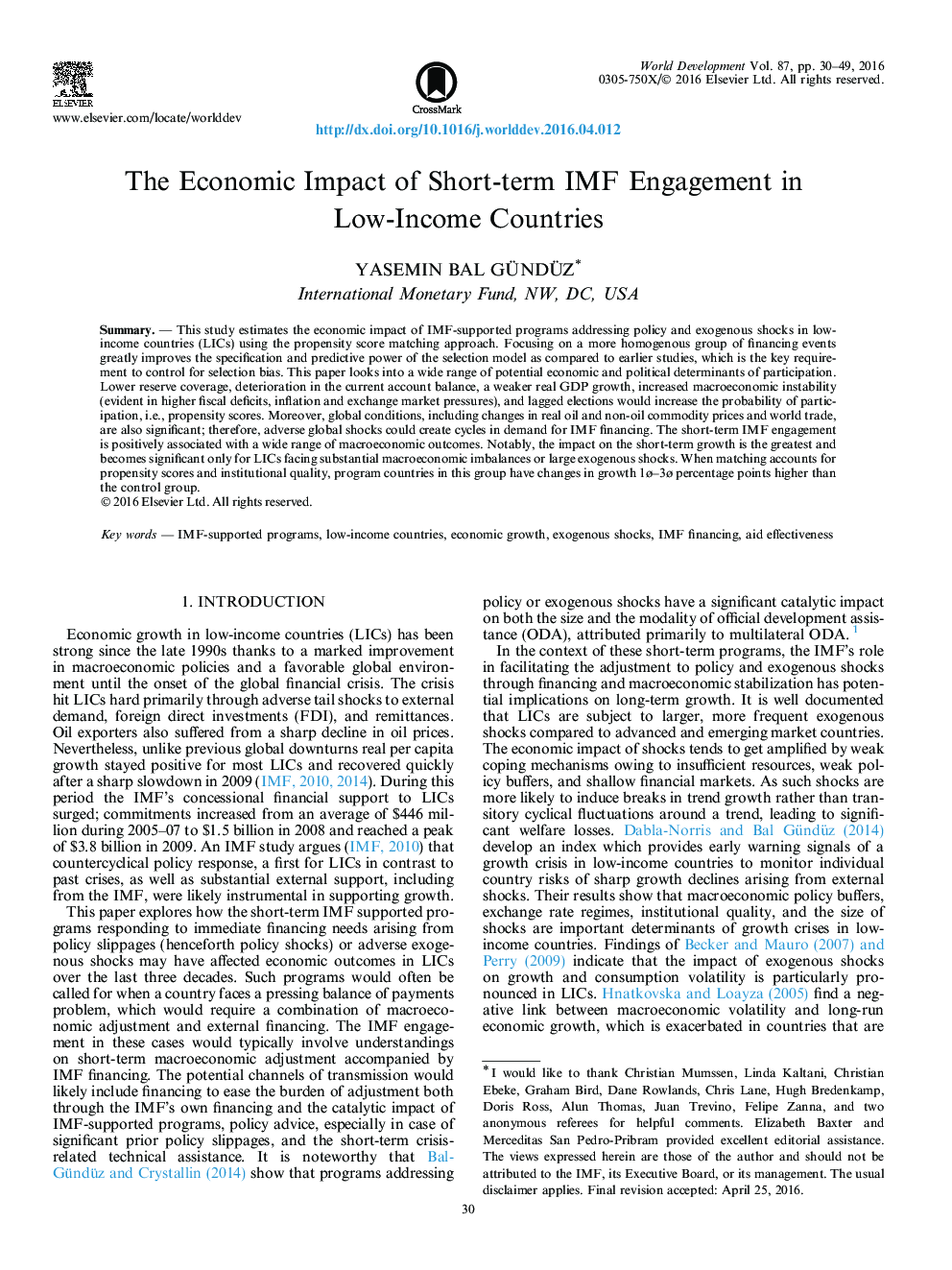| Article ID | Journal | Published Year | Pages | File Type |
|---|---|---|---|---|
| 7392382 | World Development | 2016 | 20 Pages |
Abstract
This study estimates the economic impact of IMF-supported programs addressing policy and exogenous shocks in low-income countries (LICs) using the propensity score matching approach. Focusing on a more homogenous group of financing events greatly improves the specification and predictive power of the selection model as compared to earlier studies, which is the key requirement to control for selection bias. This paper looks into a wide range of potential economic and political determinants of participation. Lower reserve coverage, deterioration in the current account balance, a weaker real GDP growth, increased macroeconomic instability (evident in higher fiscal deficits, inflation and exchange market pressures), and lagged elections would increase the probability of participation, i.e., propensity scores. Moreover, global conditions, including changes in real oil and non-oil commodity prices and world trade, are also significant; therefore, adverse global shocks could create cycles in demand for IMF financing. The short-term IMF engagement is positively associated with a wide range of macroeconomic outcomes. Notably, the impact on the short-term growth is the greatest and becomes significant only for LICs facing substantial macroeconomic imbalances or large exogenous shocks. When matching accounts for propensity scores and institutional quality, program countries in this group have changes in growth 1.5 and 3.5 percentage points higher than the control group.
Related Topics
Social Sciences and Humanities
Economics, Econometrics and Finance
Economics and Econometrics
Authors
YasemÄ°n Bal Gündüz,
